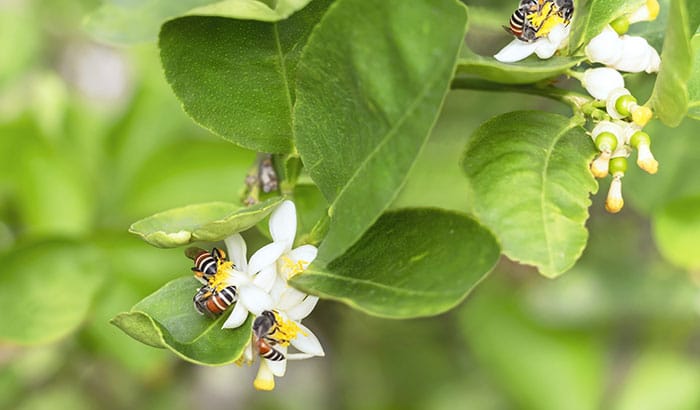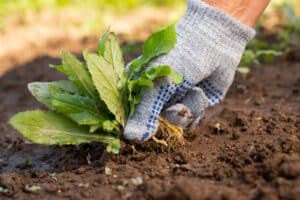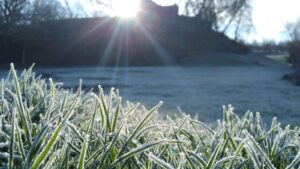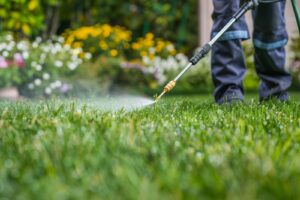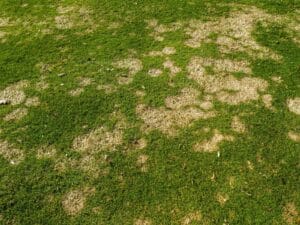When bees pollinate your garden, your first instinct might be to shoo them away, but they are a necessary part of plant reproduction and growth.
Honey bees might feel threatening as they circle your head in search of some nectar, but they are actually quite passive and gentle. If you want to keep your garden and yard flourishing, you need to find ways to welcome them instead of fearing them. Keep reading to learn more about bee pollination and how it can help your garden grow.
What Is Bee Pollination?
The most important thing that bees do is pollinate plants and crops. From fruits and vegetables to flowers and trees, bees are responsible for plant reproduction. In the United States, there are over 4,000 species of native bees that work to keep our greenery alive every day.
Pollination works as bees transfer tiny grains of pollen from the flower of one plant to another of the same kind. This transferring process is also called “cross-pollination” and helps flowers continue to grow and produce more seeds.
Are Bees Necessary for Gardens?
Although bees might seem like a nuisance as you’re trying to water and care for your plants, they are essential for your garden to thrive. Flowers, trees, and fruits that are frequently visited by bees will produce larger and more uniform results than those less visited.
How to Attract Bees to Your Garden
Now that you know how essential bees are for your garden, it’s important to understand how to attract them. As bees pollinate your plants, you can rest easy knowing that they’re trying to help instead of feeling threatened by them.
In addition to investing in necessary gardening supplies, gardeners should prioritize bee pollination. Here are a few ways to attract more bees to your garden:
- Don’t use pesticides that deter bees on your plants
- Use local native plants instead of exotic ones
- Plant several colors of plants and flowers
- Choose a variety of flower shapes and types
- Plant your flowers in clumps
- Include a variety of plants that flower all season long
- Select a space for your garden that sees ample sunlight and will be sheltered from strong winds
- Install a reliable water source such as a garden pond or a water feature
A few examples of bee-friendly plants include rosemary, poppies, clovers, sedum, oregano, milkweed, zinnias, sedum, wild geranium, marigolds, bee balm, asters, and more.
Let Summit Lawn & Pest Control Help
We love to see bees pollinate your garden, but they can pose a problem if their territory is threatened. If your property is overrun with hives and aggressive honey bees, Summit Lawn & Pest Control is here to help. We can remove these nests before they damage any structural elements of your chimney and roof.
We serve cities in Utah County, Utah, including Lehi, American Fork, Orem, Provo, Spanish Fork, and more! Contact us today to schedule your free assessment and find out what we can do for your yard!
When bees pollinate your garden, your first instinct might be to shoo them away, but they are a necessary part of plant reproduction and growth.
Honey bees might feel threatening as they circle your head in search of some nectar, but they are actually quite passive and gentle. If you want to keep your garden and yard flourishing, you need to find ways to welcome them instead of fearing them. Keep reading to learn more about bee pollination and how it can help your garden grow.
What Is Bee Pollination?
The most important thing that bees do is pollinate plants and crops. From fruits and vegetables to flowers and trees, bees are responsible for plant reproduction. In the United States, there are over 4,000 species of native bees that work to keep our greenery alive every day.
Pollination works as bees transfer tiny grains of pollen from the flower of one plant to another of the same kind. This transferring process is also called “cross-pollination” and helps flowers continue to grow and produce more seeds.
Are Bees Necessary for Gardens?
Although bees might seem like a nuisance as you’re trying to water and care for your plants, they are essential for your garden to thrive. Flowers, trees, and fruits that are frequently visited by bees will produce larger and more uniform results than those less visited.
How to Attract Bees to Your Garden
Now that you know how essential bees are for your garden, it’s important to understand how to attract them. As bees pollinate your plants, you can rest easy knowing that they’re trying to help instead of feeling threatened by them.
In addition to investing in necessary gardening supplies, gardeners should prioritize bee pollination. Here are a few ways to attract more bees to your garden:
- Don’t use pesticides that deter bees on your plants
- Use local native plants instead of exotic ones
- Plant several colors of plants and flowers
- Choose a variety of flower shapes and types
- Plant your flowers in clumps
- Include a variety of plants that flower all season long
- Select a space for your garden that sees ample sunlight and will be sheltered from strong winds
- Install a reliable water source such as a garden pond or a water feature
A few examples of bee-friendly plants include rosemary, poppies, clovers, sedum, oregano, milkweed, zinnias, sedum, wild geranium, marigolds, bee balm, asters, and more.
Let Summit Lawn & Pest Control Help
We love to see bees pollinate your garden, but they can pose a problem if their territory is threatened. If your property is overrun with hives and aggressive honey bees, Summit Lawn & Pest Control is here to help. We can remove these nests before they damage any structural elements of your chimney and roof.
We serve cities in Utah County, Utah, including Lehi, American Fork, Orem, Provo, Spanish Fork, and more! Contact us today to schedule your free assessment and find out what we can do for your yard!


